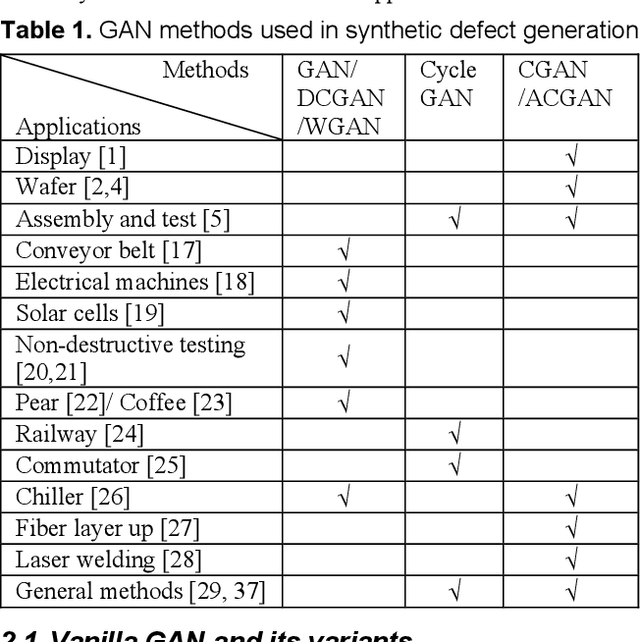Zhendong Hong
Synthetic Defect Generation for Display Front-of-Screen Quality Inspection: A Survey
Mar 03, 2022



Abstract:Display front-of-screen (FOS) quality inspection is essential for the mass production of displays in the manufacturing process. However, the severe imbalanced data, especially the limited number of defect samples, has been a long-standing problem that hinders the successful application of deep learning algorithms. Synthetic defect data generation can help address this issue. This paper reviews the state-of-the-art synthetic data generation methods and the evaluation metrics that can potentially be applied to display FOS quality inspection tasks.
Video Frame Interpolation via Structure-Motion based Iterative Fusion
May 11, 2021



Abstract:Video Frame Interpolation synthesizes non-existent images between adjacent frames, with the aim of providing a smooth and consistent visual experience. Two approaches for solving this challenging task are optical flow based and kernel-based methods. In existing works, optical flow based methods can provide accurate point-to-point motion description, however, they lack constraints on object structure. On the contrary, kernel-based methods focus on structural alignment, which relies on semantic and apparent features, but tends to blur results. Based on these observations, we propose a structure-motion based iterative fusion method. The framework is an end-to-end learnable structure with two stages. First, interpolated frames are synthesized by structure-based and motion-based learning branches respectively, then, an iterative refinement module is established via spatial and temporal feature integration. Inspired by the observation that audiences have different visual preferences on foreground and background objects, we for the first time propose to use saliency masks in the evaluation processes of the task of video frame interpolation. Experimental results on three typical benchmarks show that the proposed method achieves superior performance on all evaluation metrics over the state-of-the-art methods, even when our models are trained with only one-tenth of the data other methods use.
 Add to Chrome
Add to Chrome Add to Firefox
Add to Firefox Add to Edge
Add to Edge